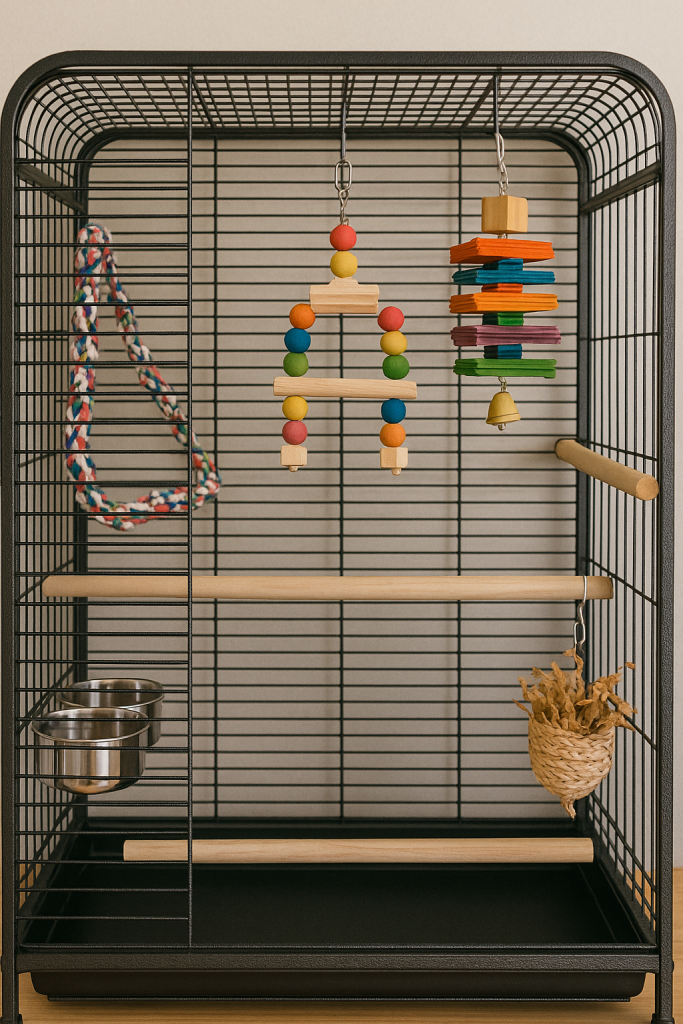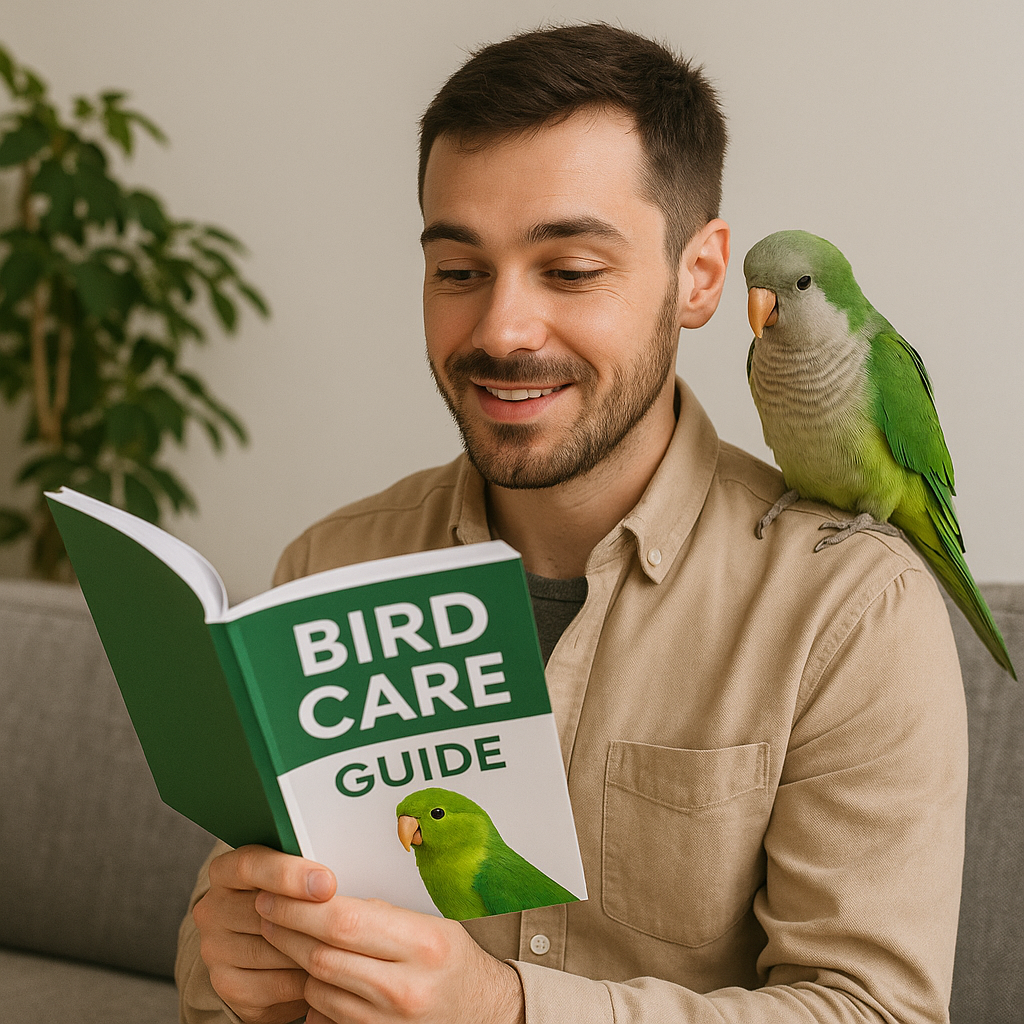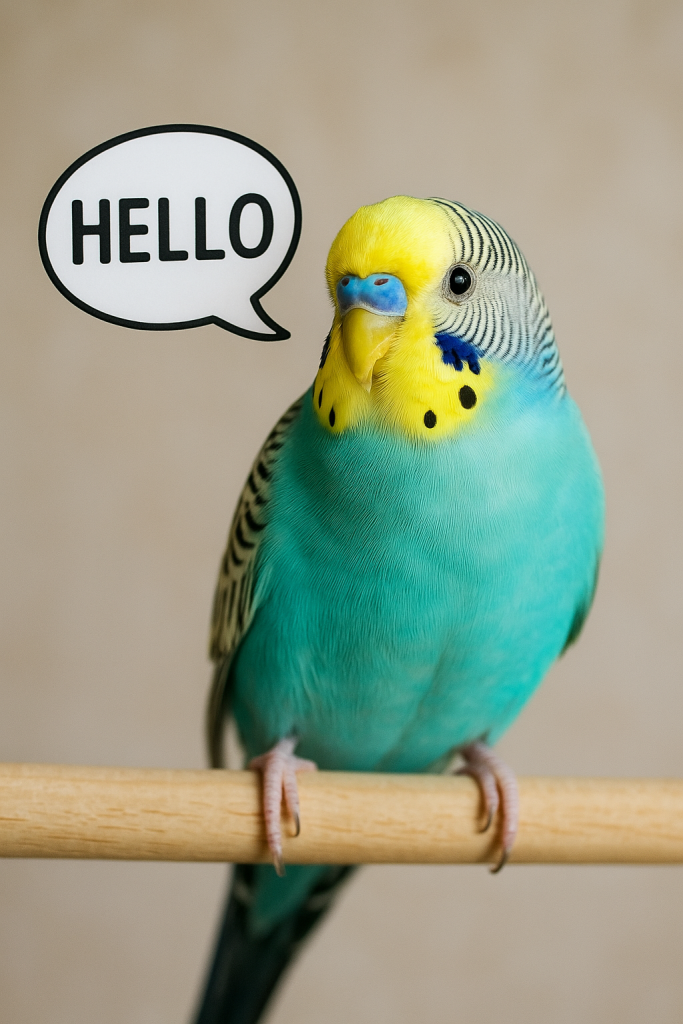Introduction
Birds are intelligent, social, and stunningly beautiful companions — but they’re not as “easy” as many first-time owners assume. Bringing home a parrot, budgie, cockatiel, or conure requires more than just a cage and some seed.
In fact, many well-meaning bird parents make innocent mistakes in those early weeks and months. And unfortunately, these errors can lead to behavior problems, stress, illness — or even shorten your bird’s lifespan.
But don’t worry. Every bird parent starts somewhere. This guide breaks down the top 10 mistakes first-time bird owners make — and how you can avoid them from day one.
1. Getting a Bird Without Researching the Breed
Not all birds are the same. A budgie and an African Grey have completely different needs, lifespans, noise levels, and social expectations.
❌ The Mistake:
- Choosing a bird based on looks or price
- Not understanding the commitment (some birds live 30–50 years!)
✅ What to Do Instead:
- Research breed-specific needs
- Ask yourself: Do I want a talker? A cuddler? A quiet bird?
- Consider lifespan, noise, messiness, diet, and bonding needs
💡 Example: Budgies are great for beginners. Macaws? Not so much unless you’re experienced.
2. Buying a Cage That’s Too Small
Birds need space to move, stretch their wings, and stay mentally active. A tiny cage is like a life sentence in solitary confinement.
❌ The Mistake:
- Picking the cheapest or smallest cage that “fits the corner”
- Not accounting for toys, perches, and space to flap
✅ What to Do Instead:
- Choose the largest cage you can afford and accommodate
- Horizontal space is as important as vertical
- Make sure bars are appropriately spaced for your bird’s size
🧠 Rule of thumb: Your bird should be able to flap fully without touching the bars.

3. Feeding Only Seeds
Seeds alone are like feeding your child nothing but chips. Tasty? Sure. Nutritious? Not really.
❌ The Mistake:
- Feeding only store-bought seed mixes
- Ignoring fresh food or pellets
✅ What to Do Instead:
- Offer a balanced mix: pellets, fresh veggies, some fruits, healthy seeds
- Include dark leafy greens, carrots, squash, apples (no seeds), and cooked grains
- Avoid avocado, chocolate, onion, caffeine — they’re toxic to birds
🥦 Fresh food = longer life + brighter feathers + better mood
4. Not Providing Daily Social Interaction
Birds are flock animals. They need social time — even the quiet ones.
❌ The Mistake:
- Leaving them in their cage all day
- Thinking they’re “independent” like fish or reptiles
✅ What to Do Instead:
- Spend at least 1–2 hours per day interacting
- Talk, play, whistle, or let them perch nearby
- Consider a second bird only if your bird is social and you’re prepared for introductions
💬 Lonely birds often develop problems like feather plucking or excessive screaming.
5. Skipping Wing Clipping or Doing It Incorrectly
Wing clipping is controversial — some prefer full flight, others opt for safety indoors.
❌ The Mistake:
- Improperly clipping wings (causes imbalance and injury)
- Clipping without understanding the purpose or ethics
✅ What to Do Instead:
- Consult an avian vet for guidance
- If you clip, ensure it’s symmetrical and allows gliding (not crashing)
- If flighted, bird-proof your space: windows, ceiling fans, hot stoves, and mirrors
✂️ If in doubt — don’t clip yourself without training.
6. Forgetting Mental Stimulation and Toys
Birds are smart. Like, “solve-a-lock-and-escape” smart. A bored bird is a destructive bird.
❌ The Mistake:
- Leaving one bell or mirror in the cage for months
- No rotation or foraging challenges
✅ What to Do Instead:
- Rotate toys weekly
- Use puzzle toys, shreddables, ladders, ropes, and swings
- Create DIY foraging boxes with paper, treats, and safe objects
🧠 A mentally stimulated bird is a happy and healthy bird.

7. Neglecting Regular Vet Visits
Birds are masters at hiding illness — by the time they show signs, it can be serious.
❌ The Mistake:
- Never seeing a vet unless an emergency
- Assuming silence or inactivity is just “calmness”
✅ What to Do Instead:
- Visit an avian vet within the first month of adoption
- Schedule annual checkups
- Watch for signs: drooping wings, discharge, fluffed feathers, decreased appetite
🚨 Any change in behavior or droppings = call the vet immediately.
8. Bathing Too Little (Or Too Much)
Birds need to bathe to maintain their feathers and skin — but not every bird likes water the same way.
❌ The Mistake:
- Never offering water baths or sprays
- Forcing a bath when the bird is fearful
✅ What to Do Instead:
- Offer shallow dish baths, mist sprays, or bring them into the bathroom during a steamy shower
- Let them choose the method — every bird is different
- 2–3 times per week is usually enough
🛁 Clean feathers = better preening and fewer health issues
9. Ignoring Noise Expectations
Birds vocalize a lot — some more than others. If you need peace and quiet 24/7, you may be surprised by your new roommate’s sound system.
❌ The Mistake:
- Expecting a “quiet” pet
- Reacting negatively to normal bird noise
✅ What to Do Instead:
- Research noise levels by breed (cockatoos and macaws are loudest)
- Play soft background music or white noise
- Establish quiet-time routines
🎵 Vocalizing is how birds communicate — not a sign they’re “bad.”
10. Using Non-Safe Household Products
Birds are super sensitive to chemicals and fumes — things that seem harmless to us can be deadly to them.
❌ The Mistake:
- Using candles, Teflon cookware, sprays, or plug-in air fresheners near birds
✅ What to Do Instead:
- Avoid: non-stick pans, aerosol sprays, scented candles, incense, cleaning products with bleach or ammonia
- Use bird-safe cleaners (vinegar + water is your friend)
- Ventilate rooms well and keep birds away from kitchens during cooking
☠️ Teflon fumes (PTFE) are lethal to birds — even in small amounts.
Final Thoughts: Mistakes Are Part of the Journey
If you’ve made some of these mistakes — don’t beat yourself up. Every bird owner has a learning curve. What matters most is your willingness to grow, learn, and provide the best possible care.
Your bird depends on you for:
- Safety
- Nutrition
- Love
- Socialization
- Mental stimulation
By avoiding these common pitfalls and showing up consistently, you’ll create a bond that’s full of chatter, personality, and trust — and one that can last decades.


